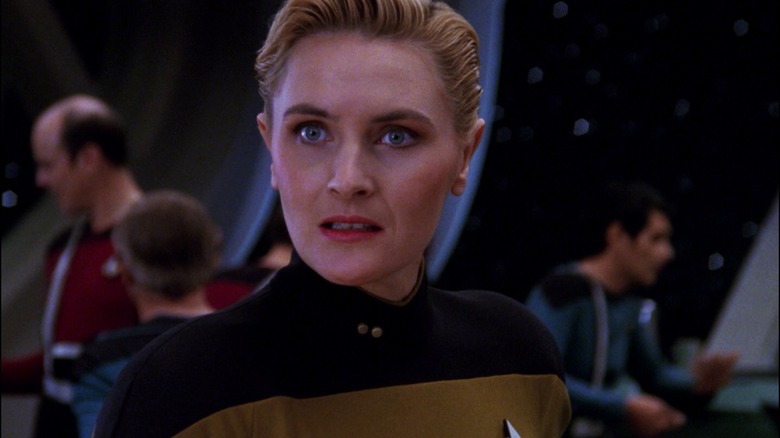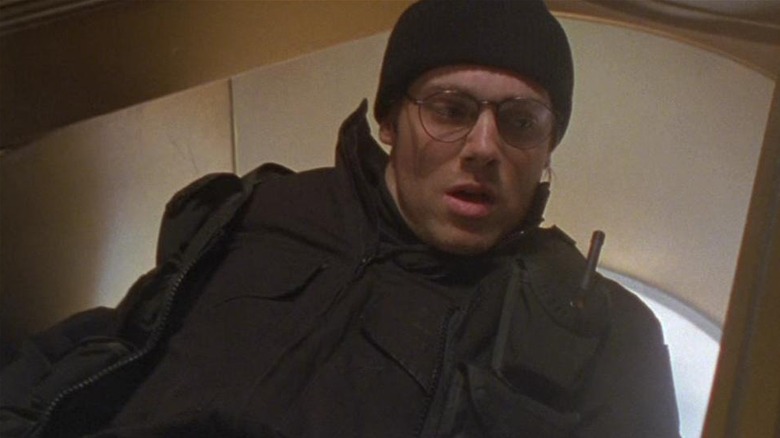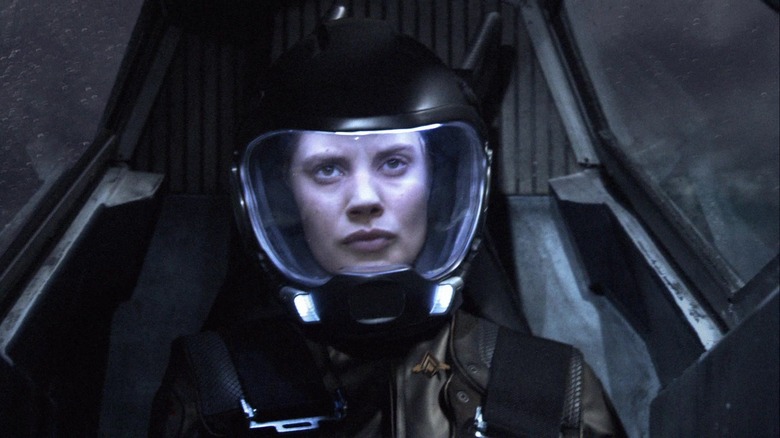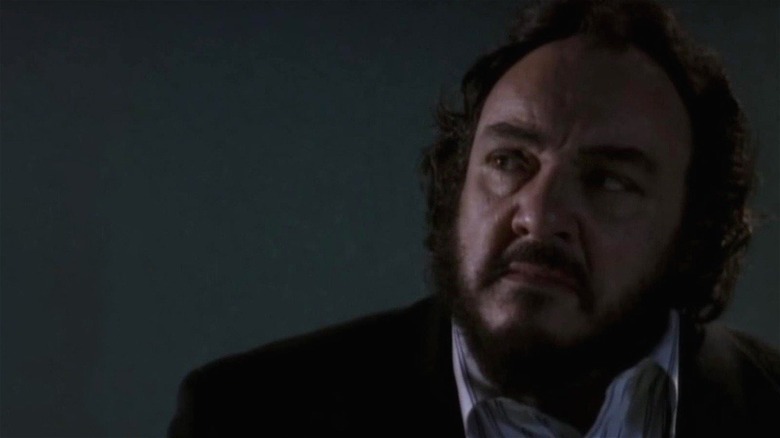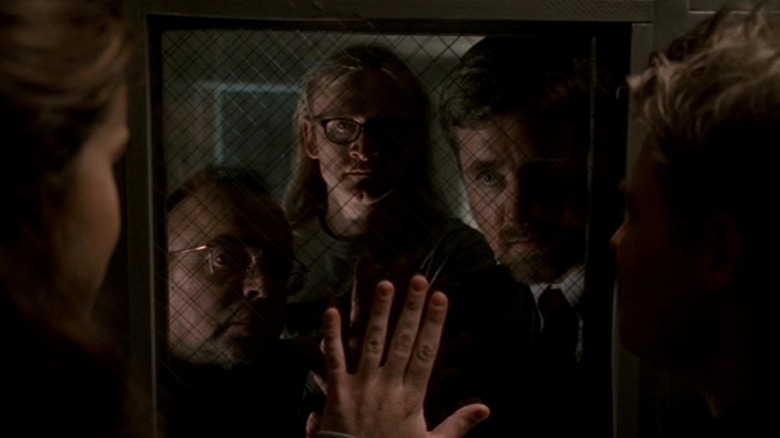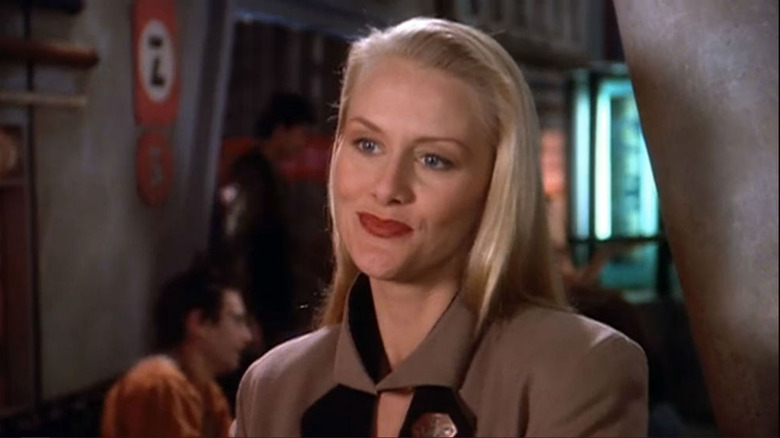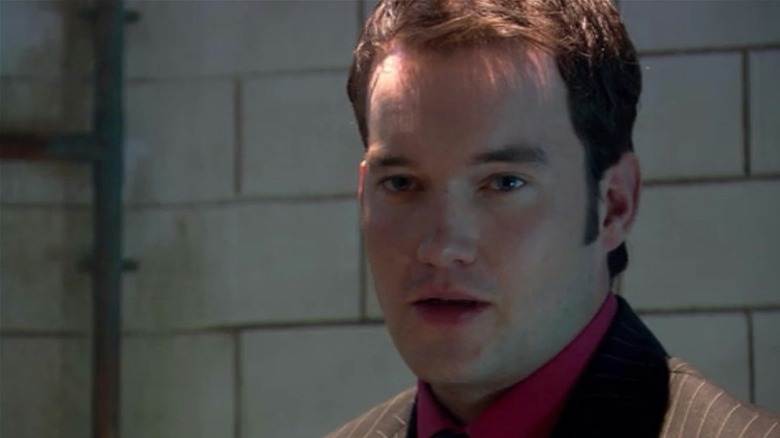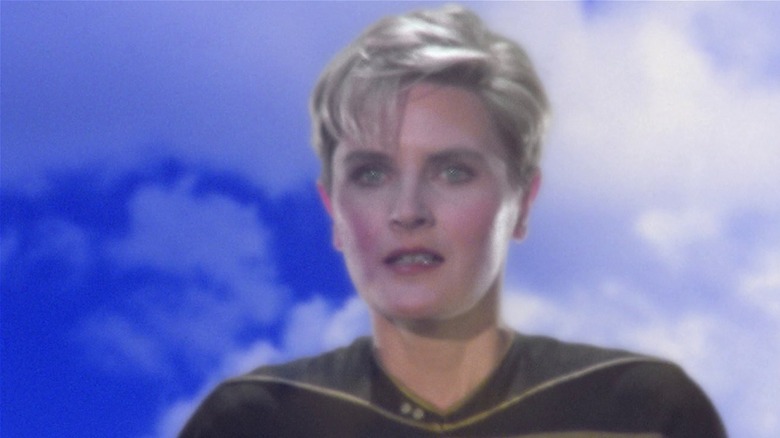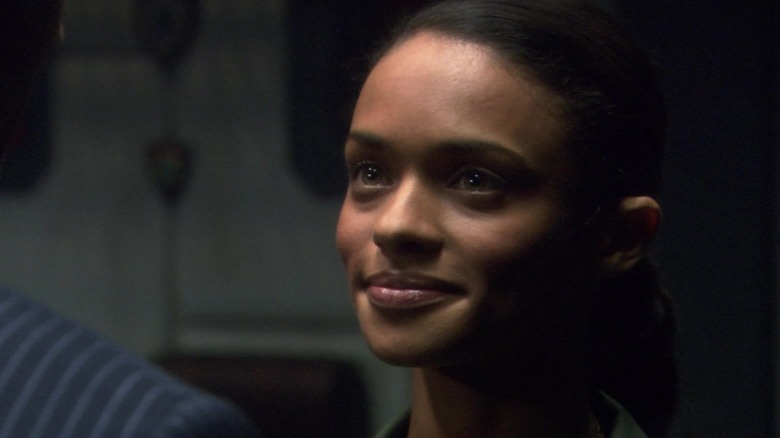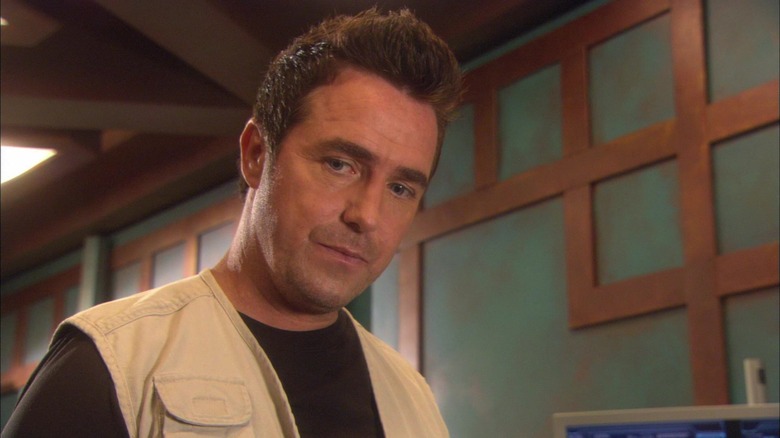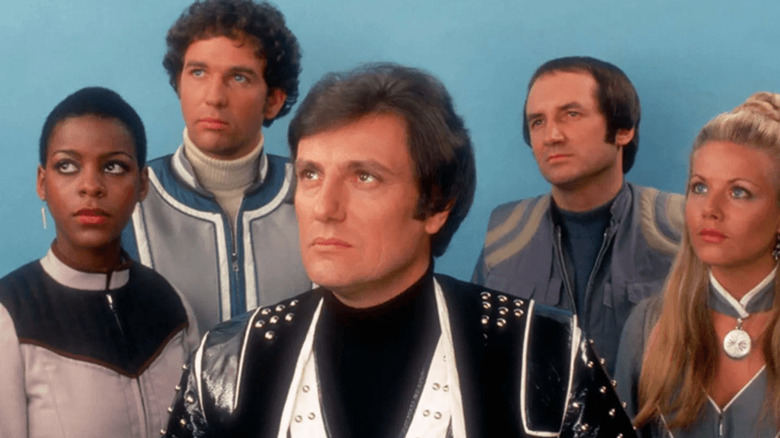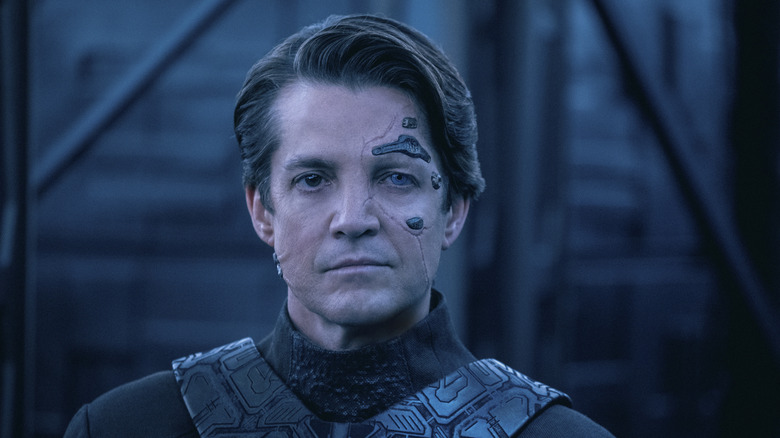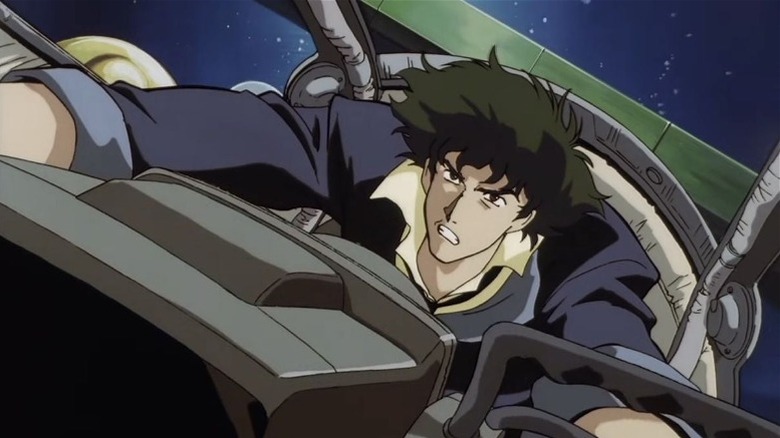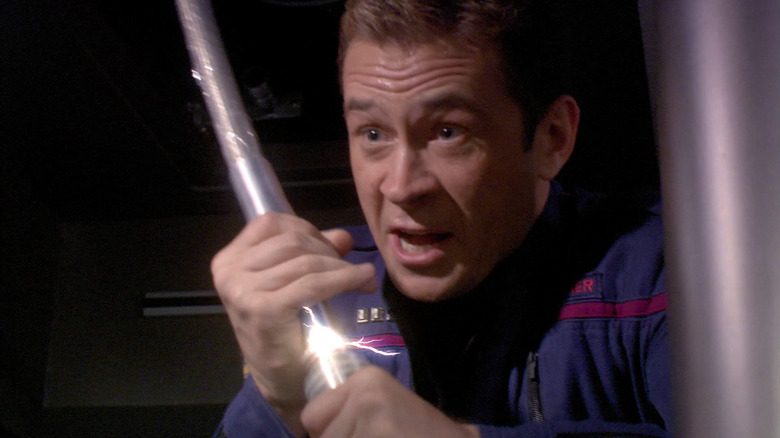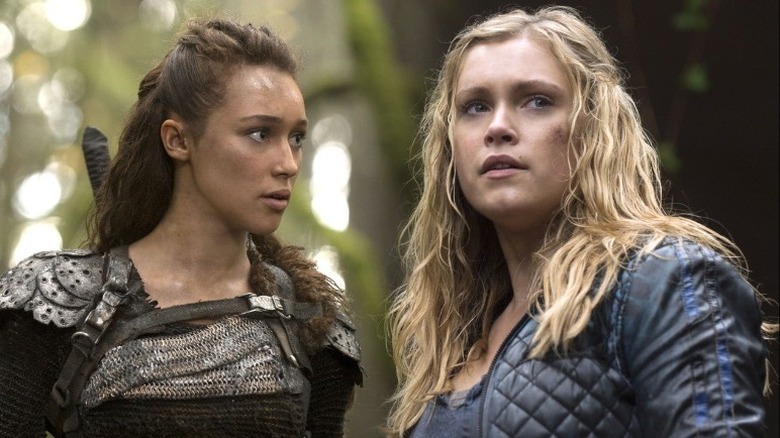The Most Controversial Deaths In Sci-Fi TV History
TV drama writers obsess over audience engagement, with a huge emphasis on personal stakes for their characters. The biggest of these is the prospect of death. But 70+ years of TV have taught us that mortality is rare for characters played by a show's stars. So, when actors leave a show or the decision is made to cut a character, writers see a golden opportunity to play the ultimate stakes game by going terminal.
It's safe to say character departures always upset a segment of a show's audience, however small. But not all such deaths are created equal. Some generate a wave of complaints, others a tsunami of outrage. It's the deaths of characters we love or love to hate, and those especially shocking or egregious, that drive fans to write all-caps messages, accompanied by many exclamation points, in fanzines, letter columns, and social media.
Here are 14 of the most controversial of the controversial.
14. Daniel Jackson, Stargate SG-1
"Oh my God! They killed Daniel!" This South Park-inspired exclamation echoed through "Stargate" fandom as early as 2006, because "Stargate SG-1" couldn't get enough of rubbing out its resident archaeologist.
It began in the 1994 "Stargate" movie, where Dr. Daniel Jackson (James Spader) met his demise but regenerated using "sarcophagus" technology. The series made the cycle of killing and reviving Jackson (Michael Shanks) into a habit. Throughout the show's run, he — and replicas and alternate-timeline versions of him — returned from the brink of death or death itself numerous times. Such absurdity wasn't lost on the characters, who once quipped, "Dr. Jackson is gonna DIE when he sees this!" "What, again?"
However, Jackson's death and subsequent ascension in Season 5's penultimate episode, "Meridian," incited a backlash. The uproar led to an 11-month campaign to bring the character and actor back, complete with advertisements in Hollywood trades and publications like Salon. Whatever the catalyst, ascended Jackson made a few appearances in Season 6. Eventually, he resumed human form in Season 7 to continue his adventures and face his slippery mortality, again and again.
13. Kara Starbuck Thrace, Battlestar Galactica
Everything Starbuck (Katee Sackhoff) stirred controversy right from the start, beginning with casting a woman, which some dismissed as a "girl boss" move. Even Dirk Benedict, the original 1978 Starbuck, joined in, and ridiculed the new version as "Stardoe."
Predictable and tiresome "Mary Sue" comments abounded. Beyond being the Galactica's very own "Top Gun: Maverick;" she could hotwire a biomechanical Cylon Raider, boasted sharpshooting skills with a pistol, excelled in hand-to-hand combat, played a vital role in discovering the ruined 13th colony, and ultimately led the way to Earth.
Given all this, it's unsurprising that even her death sparked controversy. Few accepted she would actually meet such an anticlimactic end as depicted in "Maelstrom." Indeed, she returned three episodes later. But the show managed to have it both ways: Starbuck was back, but then she located the wreckage of her old Viper and her own rotted corpse inside. So, dead but also alive. What, then, was she? A ghost? An angel? In the end, some concluded she was a deus ex machina.
12. Professor Maximillian Arturo, Sliders
"Sliders" was never a big hit, in part due to Fox network interference and studio politics, leading co-creator and executive producer Tracy Tormé to disassociate himself from the show. Actor John Rhys-Davies engaged in frequent battles with the production team over script quality, ultimately leading to the decision to eliminate his character, Professor Arturo.
"Exodus," the story responsible for his demise, took perverse pleasure in subjecting the character to humiliation, draining his brain fluid and crippling his faculties before two bullets take him out. His final lines amount to nothing, and his fellow Sliders have little to say in the aftermath, making it a big fat "So what?" to the audience.
Arturo, though pretentious and cantankerous, served as the essential element that bound the Sliders together. Fans felt his removal disrupted the character dynamic crucial to the struggling show. Many still believe that Arturo's ignoble exit marked the show's "jump the shark" moment. And speaking of that...
11. The Lone Gunmen, The X-Files
"The X-Files" final-season episode "Jump the Shark" marked the end of the show's recurring trio of quirky conspiracy theorists, the Lone Gunmen: John Byers (Bruce Harwood), Melvin Frohike (Tom Braidwood) and Richard "Ringo" Langly (Dean Haglund). They'd appeared in every season of the original series run and their own eponymous series, "The Lone Gunmen." Following its quick cancellation, the network soured on them, and the best the "X-Files" showrunners could get was an episode centered on their demise.
At the episode's conclusion, the Gunmen sacrifice their lives by sealing themselves in a corridor with a biotoxin-spewing terrorist, saving thousands. They share their final words with others through a fire door window, unable to touch them.
Fans criticized the contrivances leading to the Gunmen's fate, the absence of the characters' expected comic flair, and the tired cliché that people must die to become true heroes. The circumstance of their fatal decision even drew comparisons to Spock's (Leonard Nimoy) behind-glass death in Star Trek II, with some calling it an homage and others a ripoff. Ultimately, for many "X-Files" fans, "Jump the Shark" marked the point where the Lone Gunmen jumped the shark.
10. Talia Winters, Babylon 5
A pivotal line from the "Babylon 5" pilot notes that "No one here is exactly what he appears." This proved frighteningly accurate for the station's resident commercial telepath, Talia Winters (Andrea Thompson). Winters remained generally sympathetic until her final episode, when she experienced a unique form of death: the demise of her personality. In "Divided Loyalties," it's revealed that a Psi Corp sleeper agent unknowingly operates on Babylon 5. Such unfortunates were subjected to drugs and telepathic manipulation to craft a new personality suited to the Corps' needs, buried so deep in the subconscious that even a deep scan can't unveil it. A telepathically transmitted password will trigger the switch, annihilate the genuine personality, and allow the implanted one to take permanent control.
This is precisely what transpired when renegade telepath Lyta Alexander (Patricia Tallman) arrived at the station to expose the agent, armed with the password. It surfaced Winters' sleeper personality, who immediately attempted to murder Alexander. The Winters we knew instantly ceased to exist.
In a subsequent episode, Psi Cop Alfred Bester (Walter Koenig) stated, "We learned some interesting things about Ms. Winters in the course of her debriefing and dissect... that is, examination." Bester could have been lying, but even if true, it remained uncertain whether he meant physical or psychic dissection. Either way... chilling.
9. Ianto Jones, Torchwood
The main cast of "Torchwood" — a "Doctor Who" spin-off many people don't even know existed — included Ianto Jones (Gareth David-Lloyd), the aide-de-camp and romantic interest of the series lead, Captain Jack Harkness (John Barrowman). Many LGBTQ+ viewers, allies, and others embraced the character. So, when "Children of Earth Day Four" in Season 3 delivered an avoidable death for Jones, fandom erupted.
Killing Jones, one of the few prominent queer characters on TV involved in a gay relationship at that time, spurred accusations the show had played the disempowering "Bury Your Gays" trope, where queer characters die in higher percentages than their straight counterparts. The ensuing outcry sparked online campaigns, with a charity fundraiser in his name for Children In Need. Online threats appeared, targeting the show's writers. An impromptu shrine dedicated to the character appeared at the real-world location that served as the entrance to the Torchwood Hub, still standing as of summer 2023.
8. Tasha Yar, Star Trek: The Next Generation
The original "Star Trek," like most network shows of its time, avoided killing off its main characters or reversed any such deaths before the end credits. This rule was briefly broken in "Star Trek II: The Wrath of Khan" by Spock's sacrifice. However, the producers performed an immediate resurrection in the subsequent film. Perma-death appeared to be the exclusive province of redshirts.
Well, at least until the "Star Trek: The Next Generation" episode "Skin of Evil," which casually terminated the series-regular character, Natasha Yar (Denise Crosby). No magical resurrection for Yar; she was truly gone. Shocked fans debated her death. Some appreciated the abruptness, reinforcing the idea that risk is Starfleet's business. Others wished for a meaningful final moment or a purpose behind her demise. Her disappearance divided fans, who mourned the loss of the only woman lead in a non-nurturing role, and disliked that a male assumed her vacated post.
Yes, Yar appeared in a pair of alternate-timeline stories, one of which led to... Never mind. As Yar once said: "I'm only going to tell you this just once: it never happened."
7. Anastasia Dualla, Battlestar Galactica
Kandyse McClure's character, Anastasia "Dee" Dualla, was a reliable constant in "Battlestar Galactica." Well-liked by many fans, her abrupt death delivered a real gut punch.
The first half of the split final season, Season 4.0, concluded with "Revelations." In it, the fleet's discovery that "Earth" was a radioactive wasteland left the audience stunned, and they spent months pondering its implications. Season 4.1 began with "Sometimes a Great Notion," revealing this Earth's own Cylon War and that the mythical 13th tribe had been humanoid Cylons. Dee fell apart at this, losing all hope. But on returning to the Galactica, she exhibited an unusual positivity, briefly reconnecting with Lee Adama (Jamie Bamber), then going to her locker, humming pleasantly. There she says she wants to hang on to this feeling for as long as she can. After considering a photo of herself as an innocent child, and photos of her parents, she removes her wedding ring, then, in an act of surrender, takes her own life.
Lee can't comprehend her actions, saying he saw joy in her eyes when she kissed him goodnight. The same questions plagued other characters and the audience.
If you or someone you know is struggling or in crisis, help is available. Call or text 988 or chat 988lifeline.org
6. Carson Beckett, Stargate Atlantis
Empathetic Scottish doctor Carson Beckett began as a minor character on "Stargate: Atlantis." However, the response to actor Paul McGillon's portrayal prompted writer-producer Martin Gero to dub him the pilot's "breakout star." This led to Beckett making 15 appearances in Season 1 and eventually being promoted to a regular in Seasons 2 and 3. Given his popularity, Beckett's out-of-nowhere death in Season 3's "Sunday" met with jeers.
Fans saw it coming, however. Rumors of a funeral scene featuring a coffin draped in a Scottish flag triggered the Save Carson Beckett campaign, which started eight months before his on-screen demise. Many lamented the loss of a character considered the heart of the show. Some smelled a stunt at their expense, intentionally designed to stir up fan engagement and thus attract attention to the show.
Naturally, the writers couldn't leave well enough alone. Beckett returned... well, sort of, with a clone appearing in seven episodes. Too little too late.
5. Blake's 7
"Blake's 7" represents an exceptionally ruthless kind of science fiction series, unafraid to eliminate its main characters. Gan (David Jackson) met his demise in the second season, and titular character Blake (Gareth Thomas) and Jenna (Sally Knyvette) disappeared by its end. Cally (Jan Chappell) passed away off-camera early in Season 4. But that just scratches the surface. The show even "killed" two of the three apparently sapient computers aiding the protagonists. Only ORAC survived ... maybe.
The series finale, "Blake," dialed the darkness to 11. Blake returned but claimed Jenna was dead. Avon (Paul Darrow) shot Blake to death. Terran Federation troops gunned down Vila (Michael Keating), Dayna (Josette Simon), Soolin (Glynis Barber), and Tarrant (Steven Pacey). Avon, surrounded, raised his gun and smiled as the screen cut to black, accompanied by the sound of gunshots over the credits. And this bleakest of "Blake's 7" segments aired on December 21st; Merry Christmas, fans!
A cliffhanger for an unproduced fifth series is how writer Chris Boucher explained the gunning down, asserting only Blake had definitively died. Like the Monty Python dead parrot sketch, he proposed that the others were just stunned. But series creator Terry Nation believed the crew had been killed, complaining, "They were really dumb to do it. I killed off the Daleks, you remember? What a dumb thing that was to do, so I learned that lesson, and it should have applied to this."
Viewers remain divided on the deaths and the ending to this day.
4. Hugh, Star Trek: Picard
When a show like "Picard" capitalizes on fan nostalgia by resurrecting well-known franchise characters, there's an inherent temptation to raise the stakes by killing one or more of them. But we all know that permanent deaths for regulars are generally off the table, and most new characters lack the audience investment necessary for attention-grabbing exits. This paints a bullseye on any returning guest characters from the past.
So "Picard" resurrected "Next Generation" cyberneticist Bruce Maddox (John Ales; not the original actor) and promptly eliminated him. "Voyager" character Icheb (Casey King; also not the original actor) made a return, only to undergo gruesome torment and a mercy killing. They even offed Q (John de Lancie)! Fan favorites Ro Laren (Michelle Forbes) and Elizabeth Shelby (Elizabeth Dennehy) resurfaced only to be bumped off.
The most controversial instance involved bringing back Hugh (Jonathan Del Arco), the franchise's most sympathetic ex-Borg guest character, just to pointlessly kill him off in the episode "Nepenthe." Immediate fan fury followed, leading showrunner — and self-identified "Star Trek" fan — Michael Chabon to admit that he hadn't foreseen such a divisive reaction. Makes you wonder what rarified circle of fandom he counts himself in if he couldn't see that easily anticipated reaction coming at warp speed.
3. Spike Spiegel, Cowboy Bebop (1998)
The fate of laidback bounty hunter Spike Spiegel at the end of "Cowboy Bebop" remains a matter of contention. Series creator Shinichirō Watanabe has tiptoed around the issue, and even the show's production team pushed back on the conclusion. (Let's ignore the Netflix adaptation, and its ending.)
While a significant portion of the audience accepts that Spike's final collapse signifies his death, dissenting views exist. Some argue that the ending may not be so tragic and point to instances where Spike survived similarly fatal situations. Others reference Watanabe's statement that those who interpret Spike as asleep are probably correct, though he may just mean it's up to the audience to decide. Those who believe Spike died draw attention to recurring symbolic imagery, such as white doves flying across the frame when Spike's love, Julia, is killed — and that such doves appear when Spike collapses.
Even fairly unambiguous dialogue gets spun. When Jet Black inquires about Spike's whereabouts, Laughing Bull explains that all living beings have their own stars, and when a life ends, the star falls and disappears. He states, "His star is about to fall." Watching the closing credits to the end reveals a star brightening, flickering, and fading. Some viewers believe this star represents Spike's defeated nemesis, Vicious, but others point out its disappearance is followed by an image of Spike's face on the ground and the text "You're gonna carry that weight."
2. Trip Tucker, Star Trek: Enterprise
The annals of despised series finales include "Seinfeld," "Dexter," "How I Met Your Mother," and ... "Star Trek: Enterprise." Its concluding episode, "These Are The Voyages...," rewarded its dwindling viewership with a kick in the teeth. How? The series' characters took a backseat to "The Next Generation's" Will Riker (Jonathan Frakes). Oh, and they killed Trip.
Charles "Trip" Tucker III (Connor Trinneer) had a vibrant and easygoing personality, unwavering loyalty, and courage in defending his convictions that endeared him to viewers. In a misguided attempt to inject some gravitas into a pointless storyline, Trip met an abrupt end. His actions felt starkly out of character and unnecessary. Worse, another "TNG" interloper, Deanna Troi (Marina Sirtis) tipped off the audience to Tucker's fate, saying "It's sad. Commander Tucker had no idea he wouldn't make it back."
After Trip blows himself up real good, his actual death occurs off-camera. Afterward, he's forgotten faster than a dead redshirt on Gamma Trianguli IV. The finale provided no emotional closure for either the characters or the audience, leaving a bitter taste in the mouths of incensed fans. The series concluded with Trip forgotten, and Riker uttering the underwhelming final line, "Computer, end program." Arguably the most anticlimactic anticlimax in the franchise's history.
1. Lexa, The 100
The dystopian drama "The 100" unfolded in a world where divisions based on race, gender identity, and sexual orientation don't exist. Against this backdrop, Lexa (Alycia Debnam-Carey) emerged as one of the few multifaceted queer characters on television during that period. The series ignited a firestorm in its Season 3 episode "Thirteen," as the long-evolving romantic tension between Lexa and Clarke Griffin (Eliza Taylor) culminated in intimacy, only for Lexa to be gunned down immediately afterward.
Explosive reaction followed. "The 100" received accusations of queerbaiting and invoking the "dead lesbian trope" The hashtag #LGBTfansdeservebetter trended more than 280,000 times in just hours. Within weeks, a fan-driven campaign amassed $57,000 for the Trevor Project, which provides crisis counseling services to LGBTQ youth (subsequently raising an additional $120,000). Major media outlets including Polygon, Entertainment Weekly, The Hollywood Reporter, and Variety reported the controversy. Vox published a chart illustrating character deaths for the 2015–16 TV season, demonstrating that queer women characters suffered a higher rate of mortality than any other group.
Showrunner Jason Rothenberg initially defended the storytelling choices but ultimately acknowledged that the outcome perpetuated the "Bury Your Gays" trope. He admitted, "Our aggressive promotion of the episode, and of this relationship, only fueled a feeling of betrayal." He added, "Knowing everything I know now, Lexa's death would have played out differently."
Given this sort of thing still happens on TV, color me unconvinced.
